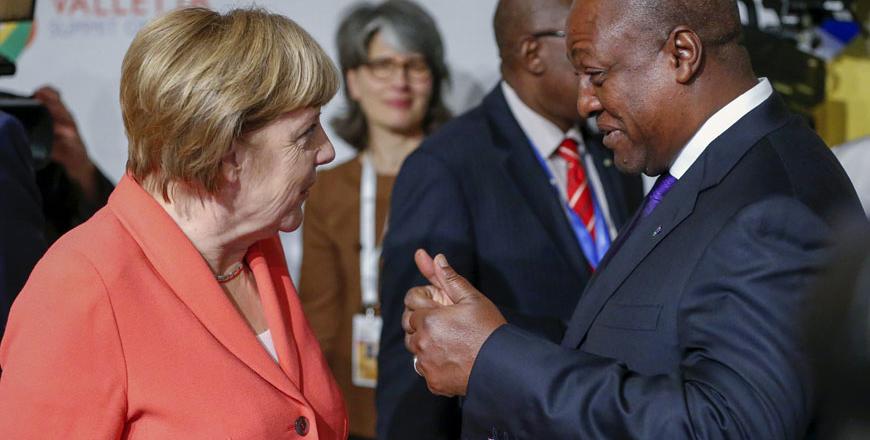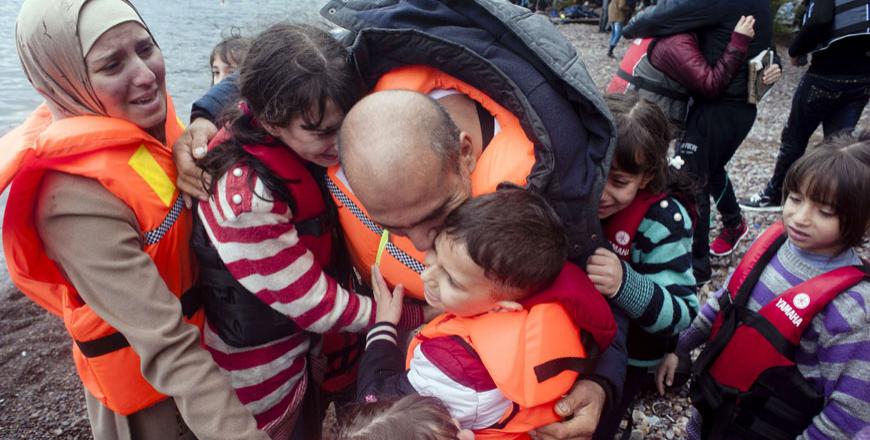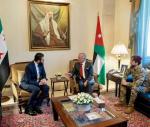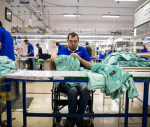You are here
EU, Africa agree migration plan despite divisions
By AFP - Nov 12,2015 - Last updated at Nov 12,2015

German Chancellor Angela Merkel (left) talks with Ghana’s President John Dramani Mahama during the Valletta Summit on Migration in Valletta, Malta, on Thursday (Reuters photo)
VALLETTA — European Union and African leaders on Thursday ended an acrimonious summit by approving a 1.8-billion-euro plan to stem an unprecedented and politically explosive flow of migrants across the Mediterranean.
Two days of often sharp exchanges in Malta concluded with the adoption of a controversial scheme to accelerate the repatriation of failed asylum-seekers, despite openly-expressed misgivings on the African side.
In a reflection of the mood, Senegal President Macky Sall used the closing press conference to take a swipe at Western neo-colonialism, claiming African governments would have no need of aid if they could collect 60 billion euros lost through multinational tax avoidance and other "fraudulent" outflows.
In a nod to African fears of a "fortress Europe" drawing up the drawbridge, Thursday's deal calls for more opportunities for legal migration. But the only concrete step agreed was a scheme to expand scholarships for students and academics to come to Europe.
The action plan is to be underpinned by 1.8 billion euros ($1.9 billion) of initial EU funding for an “Emergency Trust Fund” which will provide finance for development projects designed to address the root causes of migratory pressures including poverty, conflict, repressive governance and the unsafe conditions endured by the millions of people displaced across Africa.
The money is coming from the EU's collective budget and the bloc's 28 member states have been asked to match it with contributions of their own.
The national pledges to date however have totalled just 78.2 million euros, in an underwhelming response that officials in Brussels partly blame on populist pressure on governments to be seen taking a tough line on the migrant issue.
EU Council President Donald Tusk said the pressures on governments had left the bloc's border-free Schengen accords on the brink of collapse. "Saving Schengen is a race against time and we are determined to win that race," Tusk said.
Africans have accounted for some 140,000 of the roughly 800,000 migrants who have arrived in the EU by sea so far this year with far larger numbers now coming from Syria and other parts of the Middle East via Turkey and Greece.
Efforts to slow the rate of arrivals on that front will dominate a separate meeting of EU leaders in Valletta on Thursday afternoon, at which steps to improve cooperation with Turkey over the migrant issue will be reviewed.
Returning Africans, welcoming Syrians
Sall said the deal with the EU did not offer anything like the money needed to address Africa's problems and accused the Europeans of exaggerating the scale of African migration to Europe and "putting too much emphasis on readmission [of illegal immigrants], perhaps because of public opinion".
"And I think there is also a fundamental, philosophical question: you cannot insist on Africans being readmitted to their countries of origin when you are welcoming Syrians and others," the Senegalese leader added. "The numbers of Africans migrating towards Europe are not as great as people say."
There was also grumbling about the outcome of the discussions from the EU's leading anti-migrant hawk, Hungarian Prime Minister Viktor Orban.
"It's painful to admit but a few Greek ferryboat captains have been more effective in the struggle against migration than several rounds of meetings of 28 prime ministers," Orban said in a reference to recent moves by ferry skippers to stop transporting migrants from islands near Turkey to the Greek mainland.
British Home Secretary Theresa May insisted the talks had been constructive. "We have to be up to returning people to Africa but we also have to smash the criminal gangs [of traffickers] exploiting human misery."
Recent months have repeatedly seen national governments resort to unilateral action that undermines efforts to forge a united EU approach to the migrant question.
This week has already seen Slovenia erect a razor-wire fence along its border with Croatia and Sweden decide to temporarily reimpose passport checks for people arriving from other countries in the Schengen area.
The Swedish move was seen as particularly significant in light of the country's long and generous tradition of welcoming more refugees in relation to its size than any other European state.
Related Articles
BRUSSELS — The EU's president urged leaders gathering for an emergency summit Wednesday to stop fighting over a refugee quota deal and take
STRASBOURG, France — European Council President Donald Tusk issued a stark warning on Tuesday that the European Union had "no more than two
BRUSSELS — Italy set high demands on Thursday for any European Union deal on migration, which German Chancellor Angela Merkel urgently needs



















